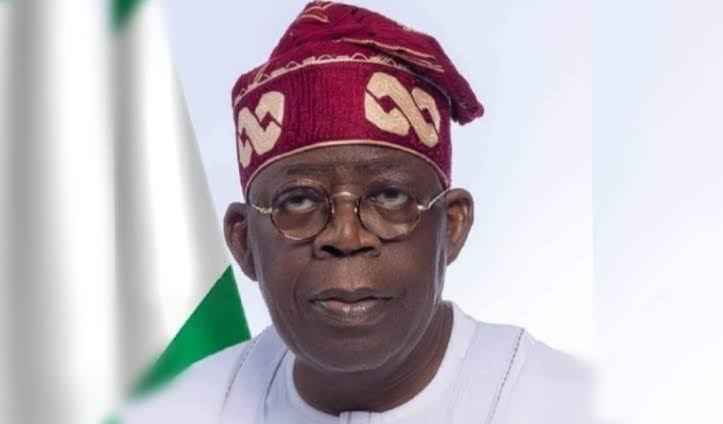President Bola Ahmed Tinubu on Thursday marked the second anniversary of his administration with a strong defence of his reform policies, asserting that despite initial hardships, Nigeria is firmly on the path of economic growth, stability, and national renewal.
Addressing the nation in a statement commemorating the occasion, the President said that his administration’s bold decisions—particularly the removal of the petrol subsidy and the unification of the foreign exchange windows—were the turning points that saved the country from economic collapse.
According to the President, these reforms were not made lightly, but were necessary to halt the nation’s downward spiral.
“Today, I proudly affirm that our economic reforms are working. We are on course to building a greater, more economically stable nation.
“The only alternative to the reforms our administration initiated was a fiscal crisis that would have bred runaway inflation, external debt default, crippling fuel shortages, a plunging Naira, and an economy in free-fall,” he said.
While acknowledging the pain felt by many Nigerians over the past two years, Tinubu emphasized the progress that has since been made.
“Despite the bump in the cost of living, we have made undeniable progress,” he said, noting that inflation is beginning to ease and prices of staples like rice are declining.
The President pointed to key improvements in the oil and gas sector, with rig counts rising over 400% in 2025 compared to 2021 and over $8 billion in new investments secured.
He also revealed that the fiscal deficit narrowed sharply from 5.4% of GDP in 2023 to 3.0% in 2024, while gross revenues in the first quarter of 2025 exceeded N6 trillion.
He further highlighted the fiscal discipline now guiding government operations.
“We have discontinued Ways & Means financing, which has been a major contributor to high and sticky inflation. The NNPC, no longer burdened by unsustainable fuel subsidies, is now a net contributor to the Federation Account”, he said.
Tinubu also reported a dramatic improvement in Nigeria’s external reserves, which grew from $4 billion in 2023 to over $23 billion by the end of 2024, as well as a drop in debt service-to-revenue ratio from nearly 100% in 2022 to under 40% by 2024.
At the subnational level, the President noted that state revenues increased by over N6 trillion in 2024, enabling states to meet obligations and invest more in critical infrastructure.
On taxation, Tinubu described the administration’s tax reform agenda as one of its “most impactful achievements.”
The tax-to-GDP ratio rose from 10% to over 13.5% within a year, reflecting gains from better tax administration and new growth-oriented policies.
He reassured low-income earners that the reforms are designed to ease their burden.
“Essential goods and services such as food, education, and healthcare will now attract 0% VAT. Rent, public transportation, and renewable energy will be fully exempted to reduce household costs further”, the President stated.
To promote fairness and transparency in the tax system, Tinubu announced the establishment of an independent Tax to protect vulnerable taxpayers and small businesses.
The President reiterated that the reforms are holistic and strategic.
“These reforms are designed to reduce the cost of living, promote economic justice, and build a business-friendly economy that attracts investment and supports every Nigerian,” he said.
On job creation and youth empowerment, Tinubu highlighted achievements in innovation, industry, and digital skills development through agencies like the National Agency for Science and Engineering Infrastructure (NASENI).
According to him, NASENI’s projects—from electric vehicle assembly and diagnostic kit factories to drone training for women—represent a new era of industrial innovation and opportunity for young people.
“This is the movement we promised—a government of action powered by the energy and innovation of young Nigerians,” he declared.
The President also spoke on the revitalization of the solid minerals sector, describing it as a new frontier for revenue and industrial growth.
“Investors are setting up processing plants as the sector dumps the old pit-to-port policy and embraces a new value-added policy,” he said.
In the health sector, Tinubu reported progress with over 1,000 Primary Health Centres revitalised and 5,500 more undergoing upgrades.
He also noted the expansion of free dialysis services, subsidised maternal care under the Presidential Maternal Health Initiative, and a jump in health insurance coverage from 16 million to 20 million Nigerians.
“Despite all odds, we have repositioned our health sector,” Tinubu said.
On education, Tinubu noted that access to quality learning has expanded, supported by infrastructure investments and the new student loan scheme for indigent students.
Security, he added, remains a top priority.
“Without a responsive and reliable national security infrastructure that can protect lives and properties, our economy will not perform optimally,” he said.
He praised the efforts of the military and security agencies in restoring peace in previously unsafe regions, such as parts of the northwest, where farmers have returned to their fields and highways are now safer.
“Our gallant armed forces have restored order, reducing and eliminating threats to lives and livelihoods,” the President affirmed.
He pledged to sustain the momentum, telling the security chiefs recently to “up their game and collaborate to end this plague of evil men.”
The Renewed Hope Agenda’s push for food security was also highlighted. Tinubu noted investments in mechanised farming, fertilisers, and tractor procurement.
“We have launched aggressive initiatives to boost local food production, support farmers, and stabilise food prices,” he said.
In infrastructure, the President listed ongoing road projects in all six geopolitical zones—from the Lagos-Calabar Coastal Highway to the Enugu-Port Harcourt Expressway and the Abuja-Kaduna-Zaria-Kano Dual Carriageway—demonstrating what he called a “nationwide development strategy.”
On power, Tinubu said the government has launched initiatives to improve electricity generation and transmission, alongside investments in off-grid solar energy for schools, homes, and health facilities.
He also spoke about diaspora engagement, introducing the diaspora bond and non-resident Bank Verification Number to facilitate investment and national involvement.
Looking ahead, the President previewed the upcoming Motherland Festival, which will showcase Nigeria’s cultural heritage, creative industries, and tourism assets.
“The Festival will bring together voices from across the continent and the diaspora… affirming that Nigeria is not only a leader in Africa but a committed global partner ready to engage, inspire, and lead,” he said.
Tinubu expressed gratitude to Nigerians for their patience and patriotism.
“Our journey is not over, but our direction is clear. So is our resolve to tackle emerging challenges. By the Grace of God, we are confident that the worst is behind us. The future is bright, and together, we will build a stronger, more inclusive Nigeria that we can all be proud of”, he said.

